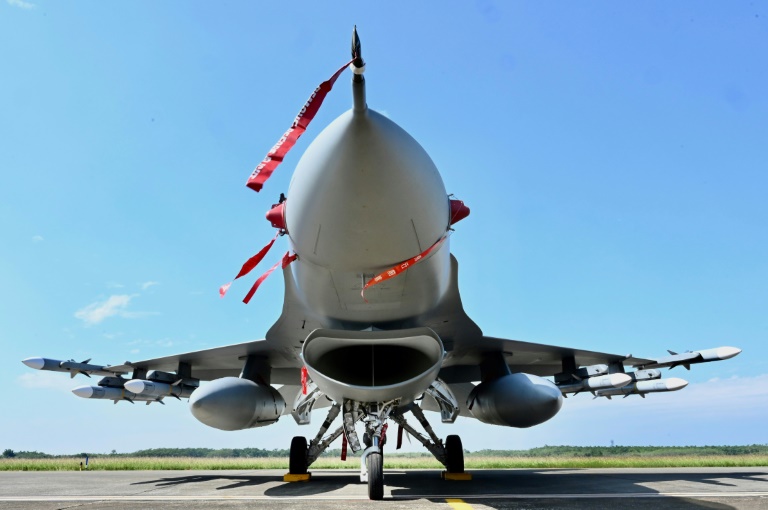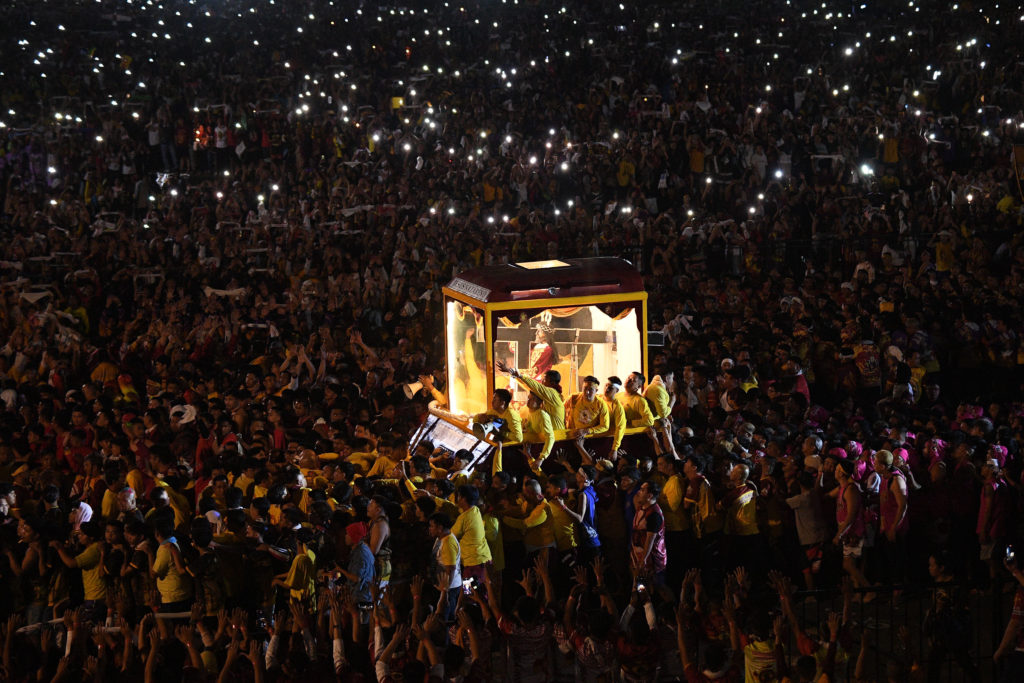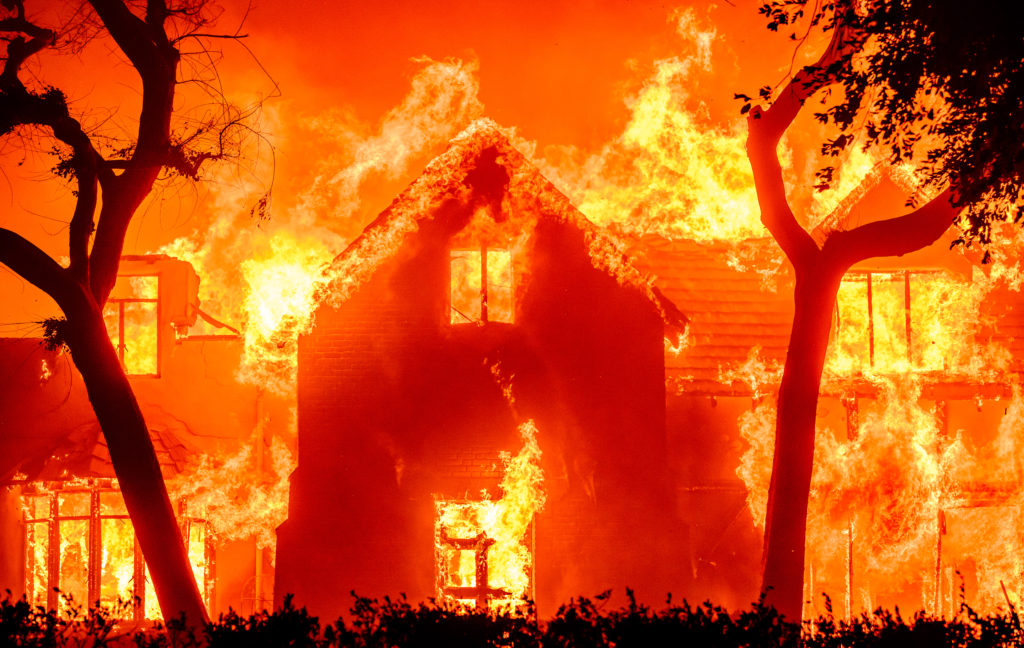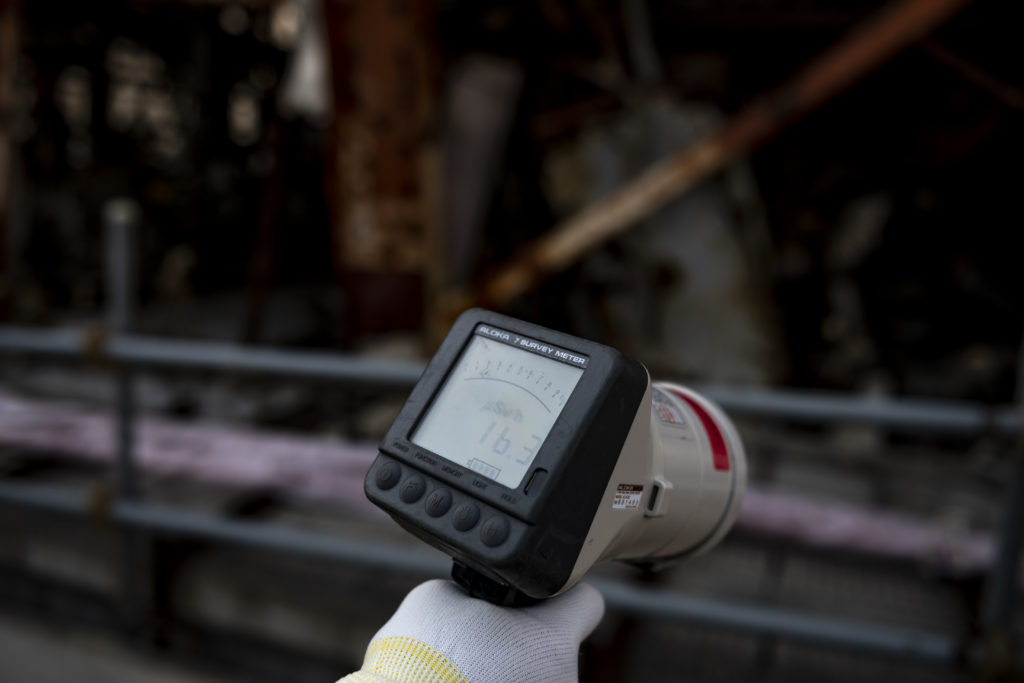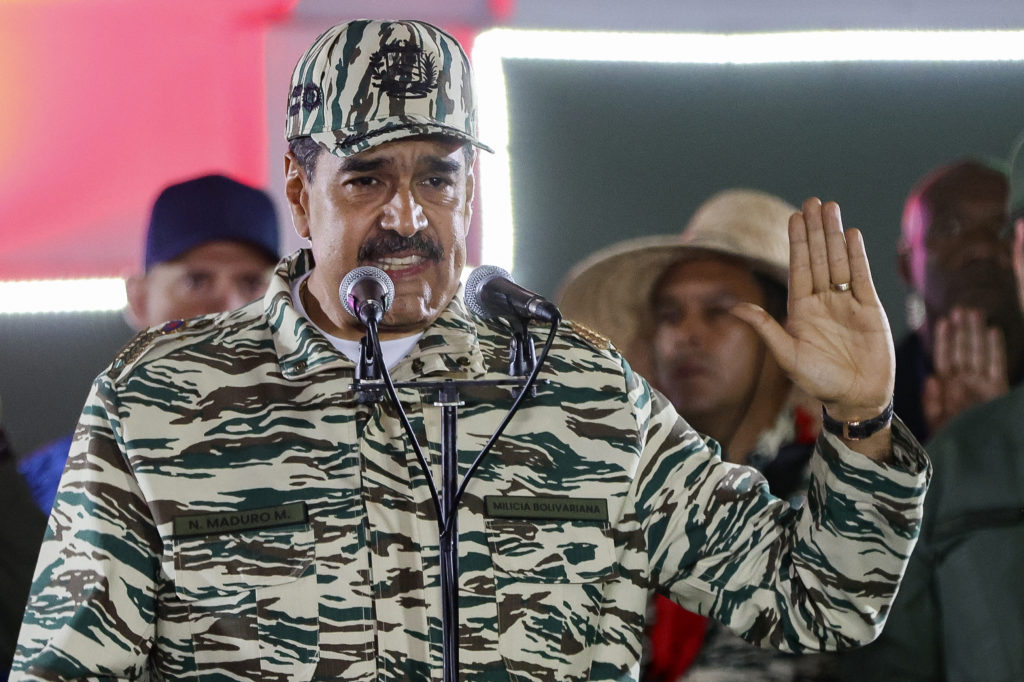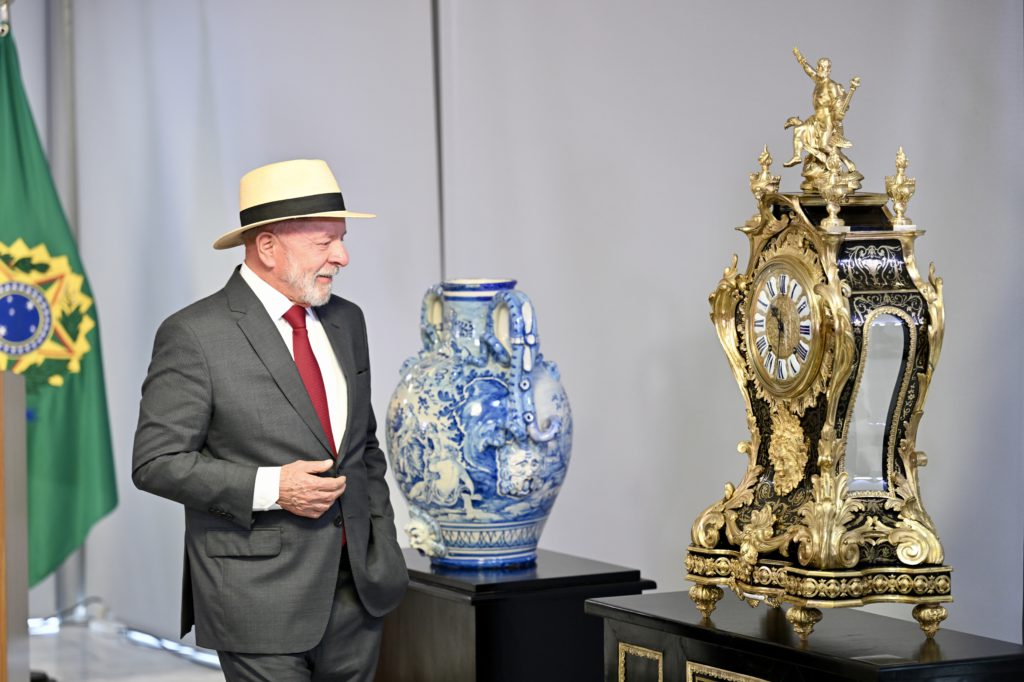Taiwan held a ceremony on Thursday to commission the first squadron of its most advanced F-16 fighter, a US-made jet that will strengthen the island’s defences against threats by China.
President Tsai Ing-wen oversaw the ceremony at an air base in the southern city of Chiayi alongside Sandra Oudkirk, Washington’s de facto ambassador to Taiwan.
“This represents the steadfast promise of the Taiwan-US partnership,” Tsai said.
“I trust that in holding fast to democratic values, there will definitely be more countries with similar values who will stand with us on this front.”
The F-16V is an upgraded and much more sophisticated version of Taiwan’s other ageing F-16 fighters which date back to the 1990s. The island also has French-made Mirage jets and its own indigenous warplane.
A fourth-generation multi-role fighter, the F-16V boasts more advanced radar systems as well as more sophisticated weaponry, navigation and electronic warfare systems.
It is however less advanced than fifth-generation fighters like China’s J-20, Russia’s Su-57 as well as the US-made F-22 and F-35 warplanes.
Taiwan is in the middle of upgrading 141 older F-16s to make them the V version and has also ordered 66 new F-16Vs.
The deployment of the first squadron comes at a time of soaring tensions between Beijing and Washington over Taiwan’s fate.
The self-ruled democracy of 23 million is claimed by Beijing which has vowed to one day take the island, by force if needs.
The ceremony prompted a fiery response from Beijing at a press briefing, with an official saying “China opposes any official contact between the US and Taiwan”.
Chinese foreign ministry spokesman Zhao Lijian urged the United States not to send “wrong signals to separatist forces”, adding that those supporting Taiwan’s independence “have spared no effort to split the motherland and collude with foreign forces”.
“Their actions are akin to throwing an egg against a rock,” he said.
Chinese sabre-rattling has reached new heights under President Xi Jinping with Beijing sending record numbers of warplanes routinely crossing into Taiwan’s air defence zone and state media regularly publicising invasion drills.
In the last decade, China has built up its military to the point where Taiwanese and US military officials have publicly voiced fears it could soon pull off an invasion.
Washington diplomatically recognises Beijing over Taiwan.
But it opposes any attempt to change Taiwan’s status by force and is bound by an act of Congress to help the island maintain its own defences.
The F-16V deal was approved by the administration of Donald Trump as he feuded with China on a host of issues but his successor Joe Biden has maintained similar support for Taipei.
Maintaining Taiwan’s defences has become a rare bipartisan issue in Washington.
China has lambasted military sales to Taiwan and imposed sanctions on US arms giants such as Boeing, Raytheon and Lockheed Martin in response.

